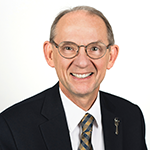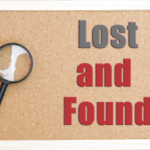Rheumatologists who are outstanding clinicians, provide consistently exceptional care to patients and serve as role models for colleagues and trainees are in the spotlight in our Lessons from a Master Clinician series. Here, we offer insights from clinicians who have achieved a level of distinction in the field of rheumatology.

Dr. Matteson
Eric L. Matteson, MD, MPH, is professor of medicine and chair emeritus of the Division of Rheumatology in the Department of Internal Medicine at the Mayo Clinic. Dr. Matteson’s clinical and research interests are in the fields of vasculitis and inflammatory arthritis. His research agenda includes investigation into the epidemiology of these diseases and their clinical disease expression and impact on patients who have them, biomarkers of disease susceptibility and disease activity, and clinical trials of novel agents. This work has resulted in more than 350 publications.
Dr. Matteson has served on the steering committee of the international study consortium investigating lung disease in the connective tissue diseases and has served as co-principal investigator for clinical and translational studies of polymyalgia rheumatica.
He is a past president of the Rheumatology Research Foundation, and he has authored or co-authored six books about the history of rheumatic disease and rheumatologists.
The Rheumatologist (TR): In your opinion, what makes for a master clinician?
ELM: This is something that is often asked, and there are many wonderful insights on this subject that ought to be shared. One response that I don’t hear much is perhaps something that I trained in myself, and I know others who I regard as master clinicians have done the same: from the time of my undergraduate studies through medical school, I found it extremely important to have a structure for my reading program. This included daily pensum (in the positive sense) of reading and reviewing specific medical topics and, also, dedicated time for reading on a nonmedical topic. For me, the latter was usually something of a historical nature or a classic work of literature.
TR: Who were some of your clinician role models, and what qualities did you admire in these individuals?
ELM: In my fellowship, William “Joe” McCune, MD, at the University of Michigan, Ann Arbor, was an important role model. Joe demonstrated the traits that I admire and that I sought to emulate: He was a great listener, thoughtful, considerate, very knowledgeable, energetic and sensitive, not only to the needs of patients, but also to those of learners. He was very tuned in to subtle discrimination and bias against women and minorities on our team, and he was effective in addressing it. That impressed me greatly and became important as I faced these same challenges in promoting the careers of our faculty. He had a great clinician’s eye for clinical knowledge gaps and how to address them, and he really got me, and many others, started in our clinical academic careers.


